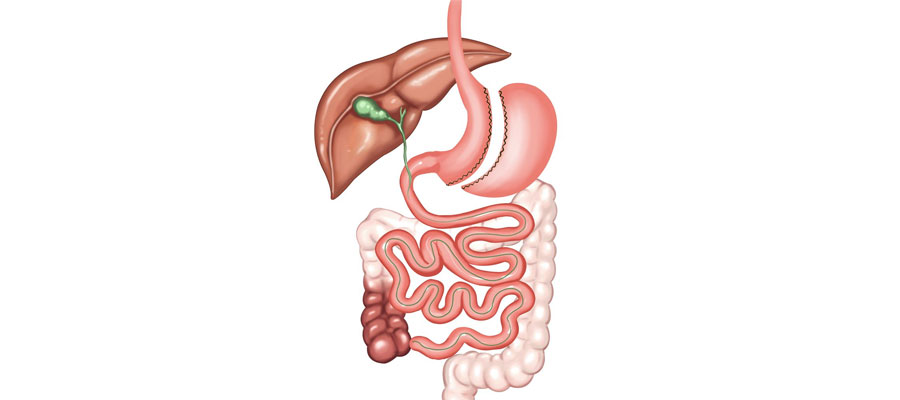
Diabetes Surgery (Transit Bipartition): Innovative Approach in Diabetes and Obesity Management
Diabetes and obesity are two major health problems of the modern age. Transit Bipartition surgery offers an effective and innovative approach to the treatment of these problems. This method, also called sugar surgery, can be a solution not only for those who want to lose weight, but also for diabetics who want to keep their blood sugar under control.
Explanation of Transit Bipartition
The increase in obesity rates worldwide has pushed the medical world to search for more effective treatment methods. Transit Bipartition is an effective surgical method that emerged as a result of this search.
Core Principles
Transit Bipartition began to be developed in the early 2000s as a potential method for treating diabetes. Its basic principle is to reduce the volume of the stomach and bypass part of the small intestine to both promote weight loss and improve insulin sensitivity. This is particularly important for patients with type 2 diabetes, as increased insulin sensitivity regulates blood sugar.
Advantages over Alternative Obesity Surgeries
Unlike other bariatric surgeries, Transit Bipartition is based on the principle of both reducing the volume of the stomach and bypassing part of the small intestine. This combination optimizes weight loss while regulating blood sugar.
Transit Bipartition Treatment
The procedure is customized according to the patient’s general health, weight and diabetes status.
Preoperative Preparation
Before surgery, patients need to undergo a detailed health screening. Blood tests, organ function tests and an assessment of diabetes status are part of this process. Patients are also informed about the potential risks and benefits of the surgery.
Surgical Methods and Approach
Transit Bipartition surgery is performed laparoscopically. This means a short recovery time and a reduced risk of complications. During surgery, the stomach is reduced in size and a bypass is created in the small intestine.
Transit Bipartition Success Rate
The success of Transit Bipartition surgery may vary depending on the patient’s general health status, pre- and postoperative follow-up, eating habits and lifestyle changes.
Short and Long Term Results of the Surgery
In the short term, patients usually show a rapid weight loss and improvement in blood sugar levels. In the long term, this surgery has positive effects on type 2 diabetes. Within a few years after surgery, many patients can maintain normal blood sugar levels without medication.
Follow-up and Success Factors
The measure of success is not only weight loss, but also blood sugar control, improved quality of life and a reduction in associated health problems. Regular doctor visits and follow-up help the patient to maintain optimal health.
Transit Bipartition in Women
Women may face some specific problems with obesity and diabetes. This depends on factors such as menopause, pregnancy and hormonal imbalances.
Specific Anatomical and Physiological Characteristics of Women
Women’s hormonal cycles can affect weight gain and loss. Especially in the post-menopausal period, weight control can become difficult. Transit Bipartition surgery can help with the challenges women face during this period.
Impact of the surgery on women
Females, improved blood sugar control, weight loss and overall quality of life have been observed after Transit Bipartition surgery. It also has positive effects in the treatment of some female-specific health problems such as polycystic ovary syndrome.
Transit Bipartition in Males
Men may be more prone to obesity and diabetes, as well as health problems such as metabolic syndrome.
Unique Anatomical and Physiological Characteristics of Men
Men’s body composition, metabolic rate and hormonal balance are among the factors that influence weight management. In men, body fat percentage and muscle mass can also affect weight management.
Effects of Surgery on the Male Body
Blood sugar control, weight loss and reduction in symptoms of metabolic syndrome have been observed in men after Transit Bipartition surgery. It may also contribute to a reduced risk of heart disease in men.
Pros of Transit Bipartition
Transit Bipartition surgery has some prominent advantages over other bariatric surgery methods. These advantages directly affect the quality of life of patients.
Controlling Diabetes and Other Benefits
Transit Bipartition effectively controls blood sugar, especially in patients with type 2 diabetes. This surgery has the potential to reduce the dose of diabetes medications or stop them altogether. It also improves obesity-related health problems such as high blood pressure, sleep apnea and cardiovascular diseases.
Improved Quality of Life
Patients often feel energized after surgery, adopt a more active lifestyle and generally experience a marked improvement in their quality of life. This manifests itself as both a physical and psychological improvement.
Drawbacks of Transit Bipartition
As with any surgical intervention, Transit Bipartition surgery has potential disadvantages.
Possible Complications and Risks
Postoperative complications such as infection, bleeding and leakage may occur, although rarely. Long-term risks such as nutritional deficiencies should also be considered.
Long-term disadvantages and follow-up
Some patients may experience vitamin and mineral deficiencies after surgery. Therefore, regular follow-up and taking the necessary supplements is essential. In addition, postoperative dietary changes and lifestyle adaptations may be required.
The Postoperative Period After Transit Bipartition Surgery
The successful outcome of Transit Bipartition surgery depends on the technical details of the surgery as well as the rules that patients should follow after surgery. In this process, a conscious and disciplined approach by the patients ensures that they fully benefit from the advantages of the surgery.
After-operative and Recovery
After surgery, patients usually need to stay in hospital for a few days. During this period, possible side effects such as pain and nausea are observed and necessary treatments are applied. Patients are advised to avoid physical activities and heavy lifting for a certain period of time after returning home. At the same time, a specific diet program is applied in the post-operative period. This diet starts with liquid foods and gradually switches to solid foods.
Exercise and Activity
After surgery, it is recommended to increase physical activity. Initially, you can start with light walks and increase the intensity of exercise over time. Physical activity supports the weight loss process and helps to maintain muscle mass.
Nutrition after transit bipartition
- Postoperative nutrition is critical both to support weight loss and to prevent nutrient deficiencies.
- Immediately after surgery, a liquid diet is started. Then pureed foods are introduced, followed by solid foods. Protein intake is encouraged, while sugary and fatty foods should be avoided.
Istanbul Transit Bipartition Surgery Prices
The cost of surgery can vary depending on many factors.
Cost of Surgery Transit Bipartition and Extras
The cost of the surgery may vary depending on the location of the hospital, the surgeon’s experience and the techniques used. Extra expenses such as post-operative follow-up, medications and supplements should also be taken into consideration.
Health Insurance and Payment Options
Some health insurances cover obesity surgeries. However, the details of this coverage may vary depending on the insurance company and the policy. Payment options and installment options may vary according to hospitals and clinics.
Transit Bipartition surgery offers an effective alternative, especially in the treatment of diabetes and obesity. However, the success of the surgery is not limited to the surgical technique. The care taken by patients in the postoperative period, the diet and lifestyle changes they follow ensure the continuity of this success.













Thanks to gastric sleeve surgery, the quality of my life has improved significantly. I feel healthier and more energetic.
Dr. Thanks to Mehdi Deniz's detailed information before the surgery and careful follow-up after the surgery, the surgery process was easier than I expected.
Weight loss after gastric sleeve surgery was quite impressive for me. However, I learned that for the process to be successful, I need to exercise regularly and continue to eat healthy.
My concerns were reduced thanks to my doctor's friendly and understanding approach before and after the surgery. He took care of me at every stage of the process and gave clear and concise answers to my questions.